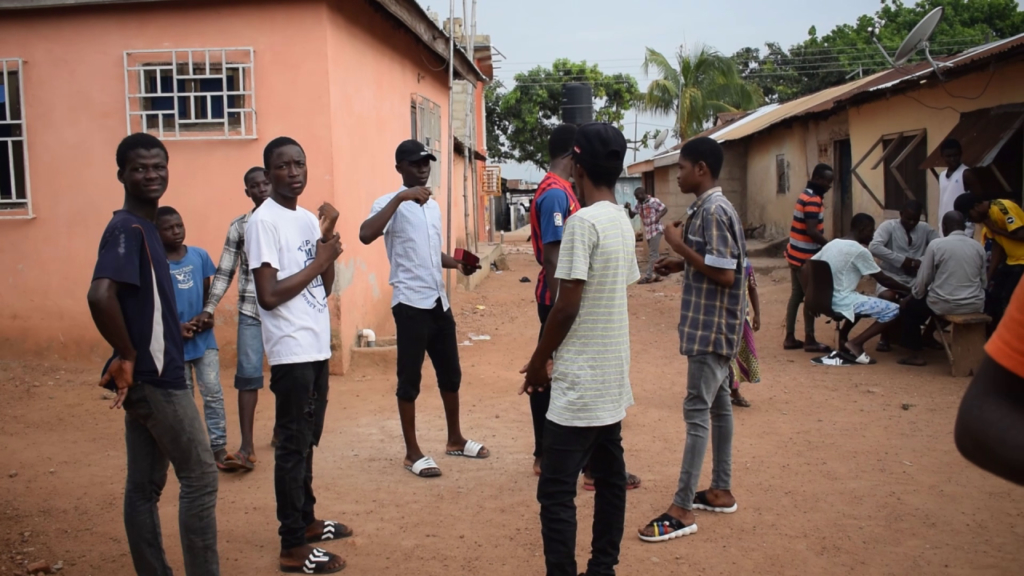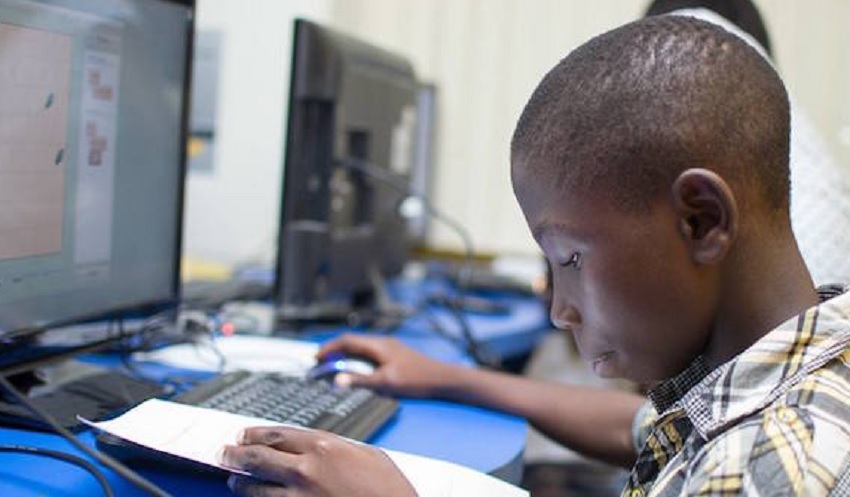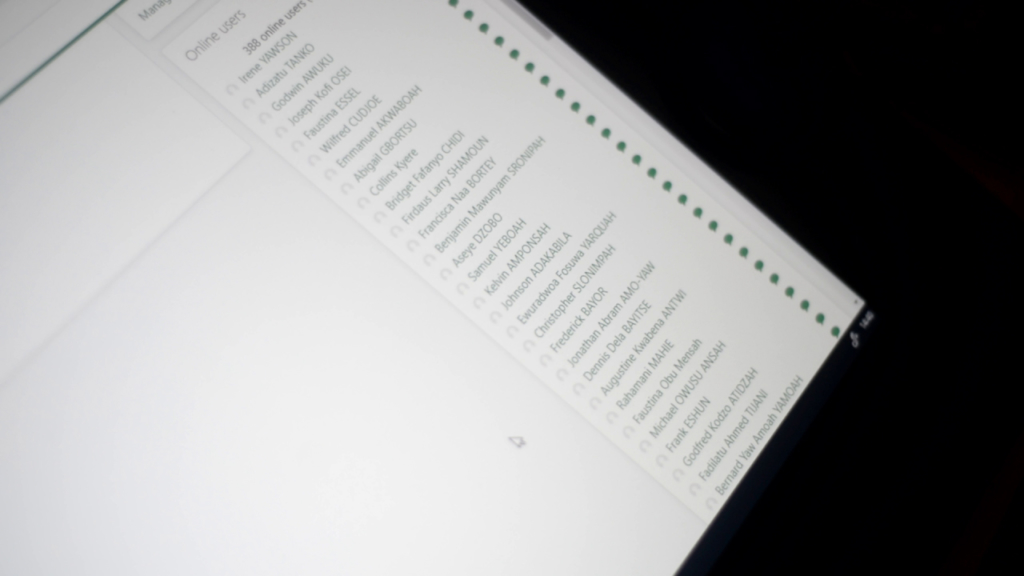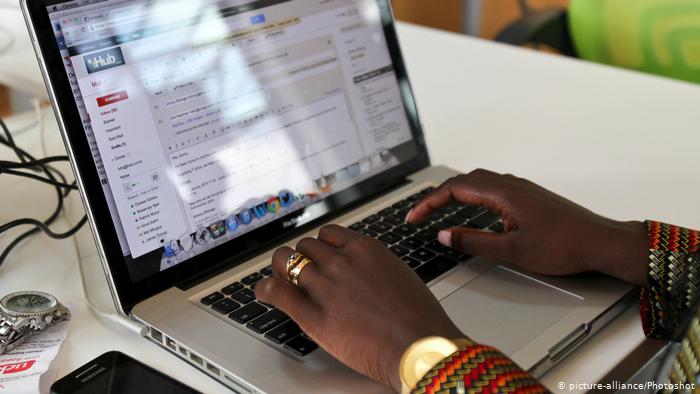Ghana’s first confirmed case of Covid-19 was announced on March 12, 2020.
The figure has since risen to over 1,000 out of which 10 lives have been lost, and the trend is anticipated to be higher.
To curb the spread of the virus, the government introduced measures, including shut down of schools.
Ghana Education Service (GES) has rolled out various distance learning platforms to enable students to catch up whilst at home.
Joy News, KNUST correspondent, Barkisu Mohammed, assesses the impact of the current e-learning interventions on teaching and learning.
---
At Aboaso in the Ashanti Region, I met Asmao, a parent. Her home chores begin just after Islamic dawn prayers: she sweeps, fetches water and washes clothes.
She supervises her children to take their bath and have breakfast. The missing link, however, is they are not going to school, and she has little to offer them by way of teaching.
“Since the break, I am only able to teach the children with the little I know but I do not know whether it is the right thing so I pray school resumes soon,” she said.
The daily routine for children now is jumping from one playground to the other.

It has been the case since President Nana Akufo-Addo ordered the closure of all schools indefinitely to prevent the spread of the coronavirus.
Many parents here have no formal education so they have little idea how the break is affecting their children’s education.

The Ministry of Education and GES have secured agreement with the Ghana Broadcasting Corporation (GBC) for a 24-hour broadcast of education materials.
The free-to-air dedicated channel known as Ghana Learning TV, began on April 3, 2020.
The Multimedia Group had been running a similar channel known as Joy Learning.
But what has been the response of the targeted groups?
“I have been going over what I have been taught in school; I don’t know anything about Learning TV,” said JHS student, Khalid Alhassan.
“I revise topic by topic, as I have been taught in school. I have heard something about Learning TV but I have not watched it before,” SHS student, Farida, stated.
Pupil Teacher, Satar Sibaway, though lauds the initiative. But he thinks it’s not enough.
“When it comes to the virtual learning, I think not everyone will get to know about it, especially, in this community. The home schooling is not working in this community, and the problem is that most parents here don’t have interest in their wards’ education,” he laments
The fate of final-year students of junior and Senior High Schools due to sit for the Basic Education Certificate Examination (BECE) and West African Senior Secondary Certificate Examination (WASSCE), respectively, remains in limbo.
GES has ordered the suspension of all academic activities while the West African Examination Council (WAEC) has put on hold all examinations.
At the tertiary level, however, teaching and learning approach is different; students have access to lecture notes through emails and instant messaging platform, WhatsApp.
Same platforms are used for mid-and end of semester exams as well as thesis, as part of the final assessment.
Government’s announcement of virtual learning platform, ‘zoom’, came, perhaps, with little or no surprise because some institutions had already piloted similar projects.
Is it new?
In 2010, KNUST started an e-learning system via an open-source and course management platform.
It is called the Modular Object Oriented Dynamic Learning Experience (MOODLE).
Dr Henry Kofi Mensah is Head of Department of Human Resource and Organisational Development at the Institute of Distance Learning.
He says KNUST is currently using the MOODLE system.
“Particularly, with MOODLE, it is a tool that digitises what we physically do on various campuses so it offers functionalities like a classroom where the various courses are enrolled. It has interfaces where you can do discussion which can be real-time or asynchronous. You can conduct various assignments, keep various course materials; it also offers functionalities such as examinations and various forms of assessment,” Dr Mensah explains.
Lecturer at the Chemistry Department, Dr Akwasi Acheampong, agrees.
“There is a lot of learning resources on MOODLE so you have a platform for teachers and students to discuss and also collaborate with others and can be used for reviews as well,” he emphasises.
Dr Acheampong added: “It’s very good because the teacher and the student are able to really interact and it gives so many resources that you are able to make available to your students i.e. videos, attachment etc. it also makes available the virtual platform.”
The system was expected to be used on a large scale but human resource and other challenges forced the suspension of its implementation.
A survey on the project found 30.58 per cent of respondents approved of it whiles 69.42 per cent had contrary view.
“The only challenge we have has to do with servers,” Dr Henry said. “If many students are trying to access it at the same time, then you have a problem,” Dr Acheampong added.

Implementation
The Institute of Distance Learning at KNUST has been using virtual learning for over a decade now. So it is assumed that all lecturers and students at the institute are well versed in virtual learning.
With the government’s announcement of virtual learning platforms, all lecturers and students in universities were directed to join the platforms.
The interventions, however, came with some challenges, including lecturers and students having difficulty in accessing them.
For several days, the service was suspended for work to be done on enrolling regular students and lecturers on.
Deputy director of KNUST Institute of Distance Learning, Dr Ahmed Agyapong said, “it became very important that we migrate all our regular students on to the platform so there was a directive from the management of the university and lecturers started migrating and enrolling their students on the platform, and we realise that the system was getting slower and slower and if care is not taken the system could crash because of the heavy traffic on the system. Fortunately, the system was developed for the university so we had that plan to expand our service.”
“The students and lecturers have been enrolled so you will only need your password and username to go into the system and have the materials. The system which was being slow will stop and will be very interactive and user friendly for both lecturers and students,” he assured.
“The system has the capacity to accommodate over hundred thousand students and currently the university’s population stands at sixty-five thousand and obviously you don’t expect all students to be on the system at the same time,” he added.
Management of KNUST, after a meeting on Monday, April 6, said arrangements have been made with Vodafone Ghana and MTN for lecturers to log on to URL websites and use Zoom to record lectures, for free, in the convenience of their homes.
The university had directed lecturers to send learning materials to the various Virtual Class and other social media platforms.
Students who are unable to log on to the Virtual Class were to contact their course representatives for the problem to be resolved.
“We had done seven weeks before the break so all lecturers have been encouraged to upload the rest of the lecture on the Virtual Class of KNUST so that the student can access those materials and in addition, they are supposed to add written assignment,” Dr Norris Berkoe is KNUST University relation officer said.
“Lecturers are trained on how to upload their materials online and draw up a study guide. They are also trained on how they can set class assignment and discussions because what drives virtual activity is the discussion and interactive nature of materials that we have there. We also train lecturers on how to become participants in class themselves,” Dr Henry said.
“Quite enough have passed through, meanwhile, we have digitised almost all trainings that we have done so we have short videos on our platforms so most of them have access to videos on how to log on, upload materials etc,” he added.
Challenges
Lecturers, on the other hand, have a different story to tell:
“Those of us who are not involved in distance learning on campus are not normally trained in virtual classroom stuff, the department that has courses in IDL will usually be trained so that they can use that to teach their students but at the Chemistry Department we do not have courses in IDL so we are normally not trained,” said Dr Akwasi Acheampong.
“Some of us got training in MOODLE from other areas because we have to do virtual causes for them,” he revealed.
Dr Makafui Tayviah is a lecturer at the Department of Religious Studies. She schooled herself and her students in the Zoom, of course, with initial difficulty. “When the University came up with online systems that we can use to teach,” she recounts. “I had to go through a number of online systems and do personal practices with all of them to be sure of which one will work for me. So out of the few, I had to pick Zoom and did rehearsals on my own as well as with my class reps, they also schooled their colleagues, and when we used it, it worked for us.”
Normally, Dr Tayviah’s class lasts for two hours for the undergraduate but, with the Zoom platform, she uses one hour 30 minutes.
Due to challenges with use of the video setting, she switched to audio.
“With the video, I realised it’ll take a lot of data and we are not in normal times and so I spoke to the students and told them we’ll have audio lessons via Zoom,” she said.

Issues with internet accessibility by students living in rural communities have become topical.
However, KNUST University Relations Officer, Dr Norris Berkoe says, “those students who are from remote areas where they do not have access to the internet, we have arranged with the various e-learning centres at the various regions for materials to be deposited there for students to access them as well as pick up assignments when they are done; they use the same means in submitting them.”
Data bundle
A study at University of Ghana in 2013 found most of the students were of the view that the university was not ready for full online programmes at both undergraduate and graduate levels.
Some of the challenges identified that could affect e-learning were the relatively low bandwidth which made the internet slow and unreliable and the low level of participation in training in the use of open learning platforms.
Currently, with what the university authority is offering, Abdallah Ihsan, a first-year Natural Resource Management student at KNUST, is unimpressed.
“It’s going to affect us because of internet connections and the monthly 2 gigabytes that the school is providing for us is not enough for the virtual learning,” he laments.
Abdul Futa, a second year KNUST Computer Science student, said on his WhatsApp status, “data must be free in times like this,” he added in a chat. “2 gigabytes, at most, last for two weeks.”
Telecommunication Engineering student, Rexford Bonney believes, “e-learning should be used as an electronic library where students can actually go there and get updated on stuff they have worked on before the pandemic, not the for assessment; if it goes that way it means we are not being fair to other students who do not have resources to access the internet.”
“I think is very commendable on the side of the authorities trying to bargain for the data charges on all e-learning platforms,” he lauded.
Students at the University of Ghana were also given directives to visit any nearby Vodafone office for a special SIM card for virtual learning.
After collecting them, some complained bitterly about not being able to access the internet.
“5 gigabytes is not enough,” said Kynock Yankey, in a WhatsApp chat. “Sometimes, we even get less than 5 gigabytes,” he added.
What about the lecturers, have they been given free bundle?
“If the students are given free data, are the lecturers also given free data? who should pay for the money I spend online trying to set up my course and all that. It isn’t that simple,” Dr Acheampong noted.
Students will be given an additional two weeks to prepare for exams when school resumes.
Should the situation worsen, however, the reopening date will be delayed.
Dr Berkoe says, “we are envisaging that should the situation get worse we will have to delay reopening date so that when they come back finally we will do the end of semester exams and continue with the rest of the semester without break as for the first years, we will wait for the West African Senior Secondary Examination to conduct their examination and pick the students based on the results.”
Online learning only benefits those who have access to the internet, leaving the rest of the student population, in thousands, deprived.
In a 2010 report, 98 per cent of people at KNUST agreed that e-learning would improve, but in a country where an estimated over 50 per cent of the population have no access to the internet, online learning will be difficult to achieve.
A study at the Presbyterian University College on e-learning implementation in institutions of higher learning shows successful implementation of the e-learning environment was dependent on four key factors: ICT leadership, support and training initiatives as well as the teachers’ ICT capacity.
Another study, a year earlier, had recommended that to make e-learning a reality, there should be some further strategies to improve access to personal computers and improve the broadband width.
These, perhaps, can serve as a guide to policymakers to ensure education, especially, at the tertiary level is feasible in times of pandemics like Covid-19.
Latest Stories
-
GH₵1 per litre isn’t a small money – GPRTU slams gov’t over new fuel levy
31 minutes -
Sam George outlines evidence-based plan to reduce mobile data costs
55 minutes -
AT Ghana gets Canadian investor, Rektron Group
1 hour -
Mahama to set up inter-ministerial committee to implement economic dialogue recommendations
1 hour -
Photos: Nurses and midwives’ strike leaves some hospitals empty
1 hour -
Chief Imam calls for peace in Bawku
2 hours -
GCB Bank pays courtesy visit to National Chief Imam ahead of Eid al-Adha
2 hours -
Luv FM High School debate 2025 launched
2 hours -
Researchers explore water access challenges among Kumasi’s urban poor amid climate change
2 hours -
GES appoints Daniel Fenyi as Head of Public Relations
2 hours -
I pray a future NPP gov’t will end politically-motivated justice
2 hours -
Fix the root, not the symptoms – ASEC condemns GH¢1 fuel levy
2 hours -
GH₵1 fuel levy is ‘regressive’ – Green Tax Youth Africa
2 hours -
NLC declares midwives and nurses’ strike illegal, orders them to call it off
2 hours -
Police intercept GH¢1m cash hidden in fertiliser bags at Juapong
3 hours

